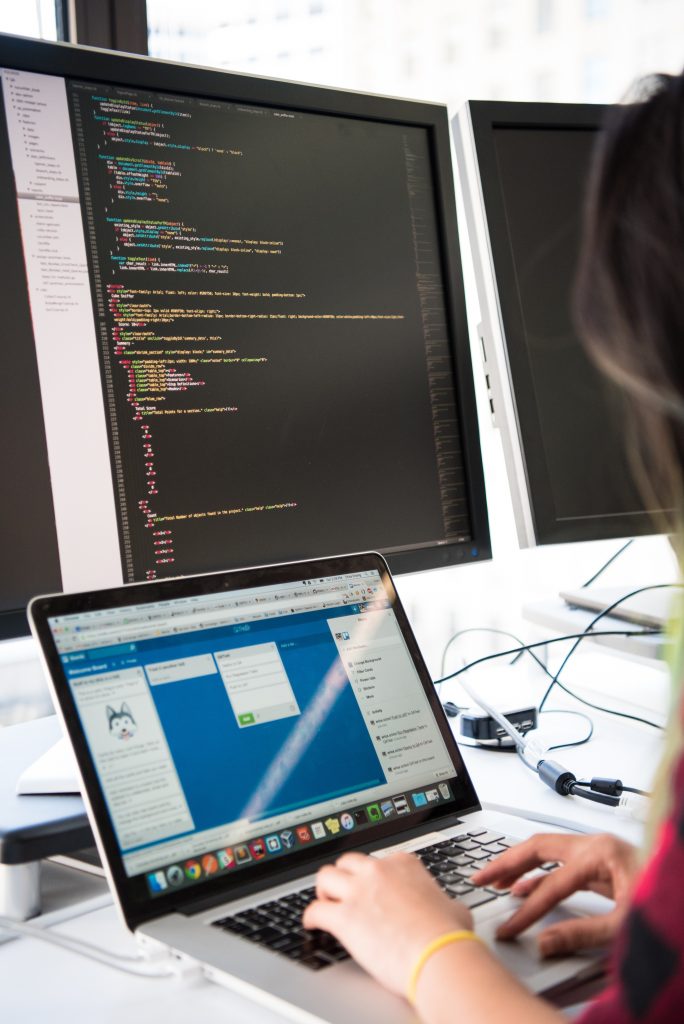The use of technology to monitor employees has been much debated by companies, shareholders and lawmakers. Oftentimes, it may seem as if companies are using monitoring technology and artificial intelligence (AI) to spy on employees.
Since this technology is new, there is still much research being done to understand and examine its effects on companies and their employees. Xueming Luo, Charles Gilliland Distinguished Chair Professor of Marketing, uses his research paper, “The Janus Face of Artificial Intelligence Feedback: Deployment Versus Disclosure Effects on Employee Performance,” to address this issue.
“When we first started this research, we were focused on how technology can improve an employee’s job skills and performance,” says Luo. “We know from previous literature that surveillance software can trigger a negative response from employees being monitored.”
His research explains that using AI as a tool to provide employee feedback improves productivity—and disclosing its use to employees helps negate those effects.
Technology has come a long way from its advent and changed how routine tasks are performed. During the coronavirus pandemic, for example, much of the transition from working in the office to working from home was possible due to these revolutionary developments in technology.
Several companies already used monitoring technology to track employees before the pandemic. Concerns about employee productivity further necessitated the use of monitoring software. A Washington Post article found that the use of keystroke logging, video surveillance and email monitoring increased as many companies started considering permanent remote work policies due to the pandemic.
Through his research co-authored with Jack Tong, PhD ’20 and others, Luo explains the benefits associated with deploying AI to track employee behavior at work. He believes that AI-provided feedback was superior to feedback provided by human managers for two reasons.
“As human beings, we frequently experience fatigue, hunger and other emotional swings during our days that may prevent us from effectively monitoring and providing accurate feedback. That is reason number one,” says Luo.
Since AI is a machine, it does not experience any of these symptoms and can work better 24/7, especially at structured data-driven tasks. “These advantages have shown to improve employee performance and firm value,” says Luo.
Second, AI can more rapidly analyze data with greater precision, providing more personalized recommendations to employees.
“While human managers can also make personalized recommendations, their cognitive limits constrain the speed at which they process data as well as their ability to achieve this goal for a large number of cases with reliability and accuracy,” Luo explains
Like the “Janus face” referenced in the paper’s title, the use of AI in employee feedback has two sides. While there are advantages, the researchers also evaluated how employees would react if such use of AI was disclosed to them.
When employees found out they were being provided technology-assisted recommendations, employee performance dropped.
The researchers offer two possible reasons for this negative effect: employees’ lack of trust in the software and employees’ fear of being replaced by these machines. But Luo offers suggestions to help mitigate the negative effects in order to reap the benefits of AI.
“We found that employees with a longer tenure were less likely to react negatively when they realized they were receiving feedback from a smart machine,” he says. “It’s when you’re new to the company, you are bound to make mistakes and don’t want every single one of them pointed out, which AI technology would do.”
The solution, according to the researchers, is to employ the use of AI feedback in a phased manner. New employees can still receive feedback from human managers, while more tenured employees receive feedback from AI machines.
Luo’s research helps companies roll out AI-backed technology for employee feedback, hopefully avoiding pitfalls with these insights.
“The new technology can immensely boost work productivity,” says Luo. “But at the same time, companies should realize that one size does not fit all.”
